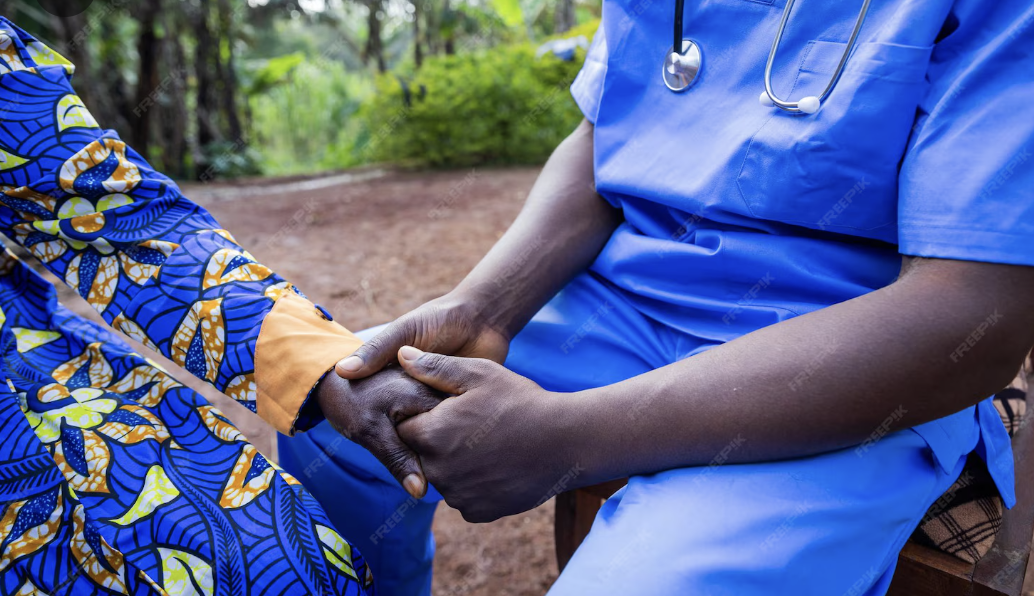Blogs

Malawi’s health financing is fraught with challenges, including being highly reliant on donor funding, which is highly unpredictable due to shifting international aid flows and competing funding priorities as donors prefer investing more in vertical programmes over broader health system strengthening. Other challenges include the generally low government allocation of the national budget towards healthcare, high out-of-pocket expenditure, and poor healthcare infrastructure across the country.
In response to these existing challenges, the Ministry of Health (MoH) established the Health Financing Technical Working Group in Malawi to coordinate and steer efforts to improve healthcare financing in the country. The TWG plays a central role in developing and overseeing strategies, policies and reforms related to health financing, including planning, implementation, monitoring, evaluation, learning, and research. The group draws membership from the relevant government departments, agencies and development partners in the health sector, including the African Institute for Development Policy (AFIDEP), through the Advance Domestic Health Financing (ADHF) initiative.
As a key partner in the Health Financing Technical Working Group, the ADHF project has provided sustained technical advisory support to advance evidence-informed decision-making in health financing. According to Mr Maziko Matemba, Global Civil Society Representative –Global Health Investors Group, Health, Rights Education Programme (HREP Malawi) –Executive Director and a key member of the TWG on Health Financing, noted that “AFIDEP has played a key technical support role in the Health Financing Technical Working Group, particularly in supporting the implementation of the Health Financing Strategy. Most notably, the project contributed to the development of both the Health Financing Monitoring and Evaluation Framework and the Operational Framework—critical tools for guiding reform”.
ADHF provided technical input to the TWG’s notable milestones, including the rollout of the Health Financing Strategy, the Direct Facility Financing (DFF) and government implementation, and the development of the Health Financing Monitoring and Evaluation Framework and the Operational Framework to guide implementation of health financing reforms. The DFF initiative aims to empower primary health centres and community hospitals with greater control over their budgets and resources to enhance health facility operations and promote efficient service delivery.
AFIDEP reviewed and refined the MoH’s DFF guidelines, a key reform under the Health Sector Strategic Plan III (2023-2030) for strengthening healthcare providers’ autonomy. AFIDEP technical input included the streamlining of funding flow and bank accounts to achieve efficiency, and also provided mechanisms for enhancing the regulatory framework of primary health care through enacting relevant laws in the long run, drawing best practices from Kenya’s primary healthcare legal reforms. The technical input helped finalise the DFF guidelines and catalysed their implementation.
The MoH introduced the DFF policy (guidelines) and is implementing it in phases to enable direct disbursement of funds to health facility accounts and reduce bureaucratic bottlenecks. The reform promises to enhance facility autonomy, improve service delivery, and increase community participation in healthcare governance. As of now, DFF has been rolled out in 13 districts, with plans to expand to 16 more. The government’s budgetary allocation increased from MWK 200 million to MWK 500 million this fiscal year, signalling political commitment to the reform.
Dr Solome Nampewo, World Health Organization (WHO)’s Health System Strengthening Advisor and a key member of the TWG, affirmed that, “AFIDEP is part of the dialogue partners under DFF, shaping the developed guidelines and sharing cross-country learning for the guidelines and roll-out in the country”
ADHF further supported the revision of the Health Financing Monitoring and Evaluation (M&E) Plan, providing evidence-informed technical input that ensured the framework’s indicators were measurable, achievable, and contextually relevant to Malawi’s health financing landscape. It refined impact and outcome indicators using data from sources such as the National Health Accounts (NHA), a process ADHF project supported. The M&E plan involves integrating monitoring mechanisms through a decentralised health information system, harmonised data systems, and streamlined digital health systems to ensure transparency, efficiency, and effective service delivery in pursuit of universal health coverage (UHC).
Mr. Maziko Matemba confirmed that “AFIDEP, in collaboration with other partners, has been very supportive of the Ministry of Health in operationalising the health reforms through sharing expertise, evidence, among others”.
The ADHF project has also led advocacy for improved resource allocation and budget credibility. It produced evidence that underscored the importance of aligning health spending with the national disease burden. The evidence provided stimulated debate and discussions during the Health Financing TWG meetings and helped stakeholders understand the complex relationship between health expenditure and key health outcomes, particularly maternal and child health. The evidence reinforced the need for the MoH to revise the resource allocation formula for districts to ensure that more resources are directed toward high-burden conditions, such as maternal and child health. Dr Solome Nampewo pointed out that “AFIDEP helped schedule health financing TWG convenings and follow-up on actions needed to be taken by the MoH”.
The ongoing AFIDEP’s engagements with the MoH and a wide range of partners through the Health Financing TWG speak to the ADHF’s aspirations of significantly contributing to improving accountability in health financing, reducing inefficiencies in health spending and strengthening capacity for evidence-based decision-making across all levels of the healthcare system in the country to achieve more sustainable and equitable health financing in the long run.
The ADHF project is a collaborative initiative between AFIDEP and Partners in Population Development–Africa Regional Office (PPD-ARO). It seeks to increase domestic investment in healthcare—particularly in primary healthcare and women’s and girls’ health—across Malawi, Kenya, Zambia, Uganda, and the broader African region.

